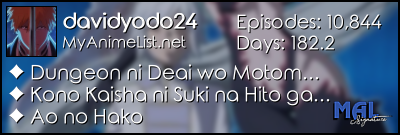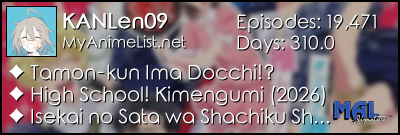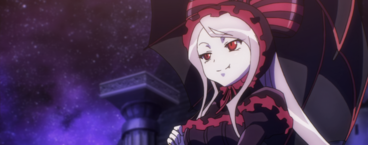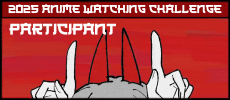Well, the conflicts are "resolved" all within one episode (usually the same one they're introduced in) so that it could be watched on an episodic basis, but not really, because they are resolved in an open-ended way. Meaning that they still leave plenty of grounds to revisit later at any point of the series' choosing. Some shows, even thinking of more episodic sitcom-esque shows, utilize this strategy, so that yes, every episode could theoretically be watched as a standalone experience and equally enjoyable compared to all the rest of the ones which preceded and follow it, but it also leaves active kernels or threads lying dormant waiting to be reactivated at any moment for more material. Which still gives longtime watchers (I know that this is currently just slated for one cour, but I mean in the case of long-running series which are more episodic in structure) and those who intend to watch the entire series from start to finish in chronological order something rewarding and to look forward to. It's a dual purpose win-win in a sense: More instant gratification to those watching random episodes out of order or paying less attention and being less invested in a series long-term, but also the foundation for something more satisfying in the future out of the world and characters for those in it for the long haul.
Like with Kano's psychological and emotional baggage over her controversial celebrity identity, her falling out with her former idol group, and the conflict with her mother - there is so much more that can be done with all that, and probably will be in one way or another, before series' end. Similar to Yoru/Mahiru's insecurities over the quality of her art and her direction with it after high school. Similar to Yoru/Mahiru's and Kano's relationship. And some other ones. Yes, they can all seem to be introduced quickly and resolved almost immediately, which can give the series a rushed feel in the moment during that episode, but if they're further developed and expanded upon at a later point then the series as a whole won't feel that way in retrospect. At least not to me and that's how I see it.
I do find the sense of time or rate of the progression of time - however you want to characterize it, to be a bit puzzling though. Obviously part of the pleasure and freedom of any anime (and any story, really) is that it can be set anytime anywhere and cover as small or large a period as the author desires. Sometimes anime do mirror the passage of real time in that a two cour series which runs for, say, 24 episodes, may have six months pass, the same amount of time it took to air, in the universe of the show. Or sometimes it will be double that length of time in the show's universe, like say a year passed in-universe for a show of that same length. But considering this is only a one cour series (at least for the time being), I did find it a bit shocking and jarring to have had so much time passed in their world for only seven weeks passed or eight episodes worth of content in ours. It would seem a little fast even if they reached the one year anniversary mark by season's/series' end in episode 12, but the fact that it already happened and it is only two-thirds of the way through in episode eight made me kind of re-evaluate in hindsight how I looked at some past episodes and everything that happened.
It's interesting because you could tell this exact same story with these exact same events, or some similar ones, as other anime have done, and have it take place over like a few weeks or a month. I do feel as if, in the case of this series, the time progression would feel more natural and fitting if it was like a few months at most. Maybe that wouldn't facilitate something they wanted to do in the story like an explicitly acknowledged and named one year anniversary project and milestone celebrated by the characters. But it still might better serve the series in terms of the sort of feel of the tempo. |





